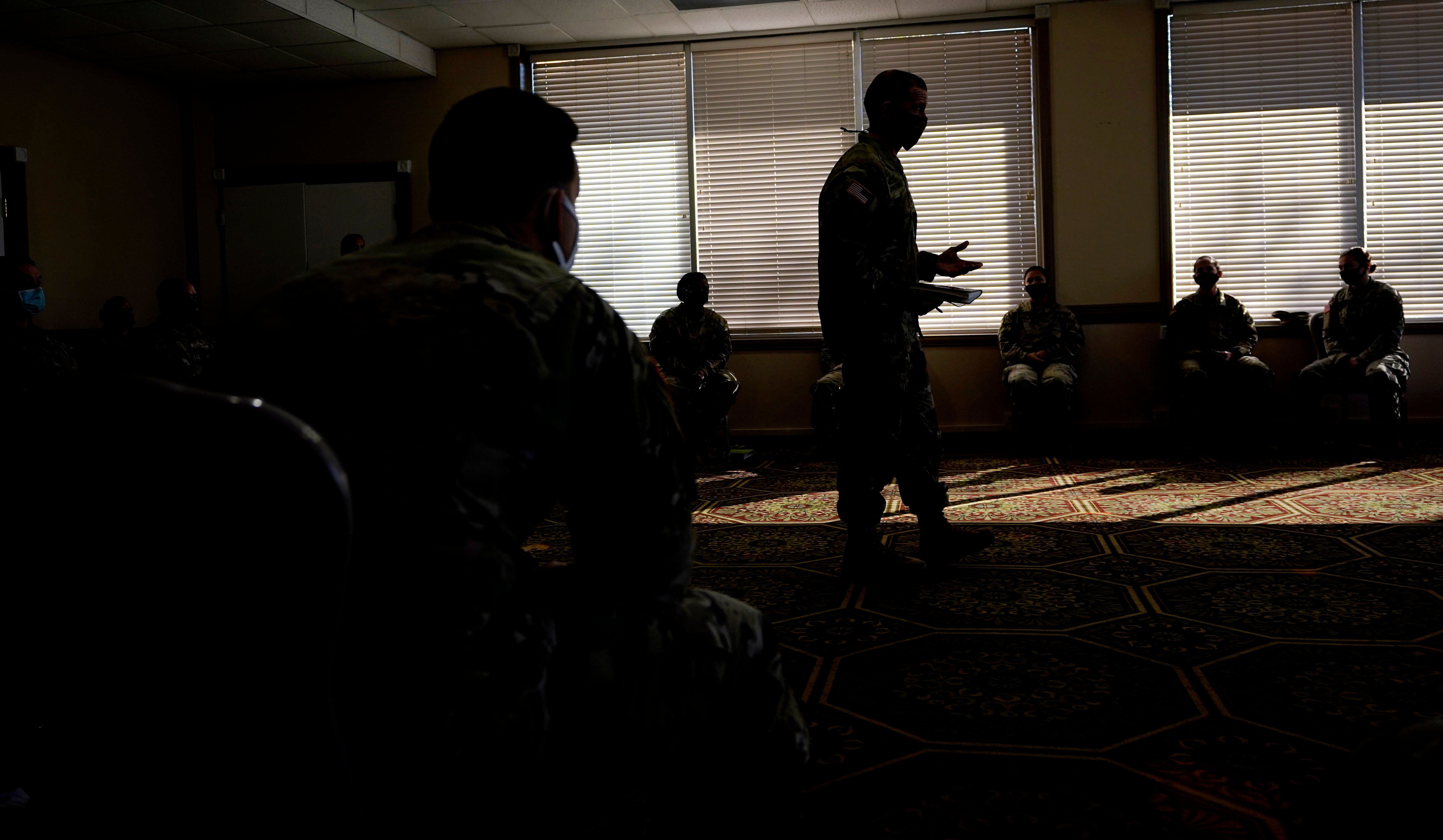Army hiring criminal investigators to improve case work
The Army has begun hiring more agents and support staff for its criminal investigations, as the new civilian director works to correct widespread failures that surfaced last year after a string of murders and other crimes at Fort Hood, Texas

Your support helps us to tell the story
From reproductive rights to climate change to Big Tech, The Independent is on the ground when the story is developing. Whether it's investigating the financials of Elon Musk's pro-Trump PAC or producing our latest documentary, 'The A Word', which shines a light on the American women fighting for reproductive rights, we know how important it is to parse out the facts from the messaging.
At such a critical moment in US history, we need reporters on the ground. Your donation allows us to keep sending journalists to speak to both sides of the story.
The Independent is trusted by Americans across the entire political spectrum. And unlike many other quality news outlets, we choose not to lock Americans out of our reporting and analysis with paywalls. We believe quality journalism should be available to everyone, paid for by those who can afford it.
Your support makes all the difference.The Army has begun hiring more agents and support staff for its criminal investigations, as the new civilian director works to correct widespread failures that surfaced last year after a string of murders and other crimes at Fort Hood, Texas
Gregory Ford who took over as head of the Army Criminal Investigation Command, or CID, about a month ago, told reporters Wednesday that he visited Fort Hood last week. He said the hiring process for more than 90 positions has begun, and the Army is already getting a good response from individuals interested in joining CID.
A review late last year found CID was understaffed and badly organized, with too few experienced investigators. The findings came amid heightened scrutiny after the death of Vanessa Guillén, a soldier whose remains were found about two months after she was killed.
More than two dozen Fort Hood soldiers died in 2020, including homicides and suicides. Guillén’s death and the other cases prompted an independent review, which found that CID investigators lacked the acumen to identify key leads and “connect the dots” in investigations. It said they were victims of a system that failed to train them and often had them doing administrative tasks.
The Army earlier this year decided to put a civilian in charge of CID, which to date had been led by a general officer. The decision was in line with the review recommendations in an effort to revamp the command.
Ford said he is moving ahead with Army plans to increase the number of civilian agents so they would make up about 60% of the investigators, while military agents make up the remainder.
In addition, he said, “I’ve been taking a very hard look at our policy and the administrative burden we place on our workforce and have directed a further review to eliminate the duplication of effort and some of the unnecessary policy requirements that may exist.”
Fort Hood, Fort Bragg in North Carolina and Fort Carson in Colorado are part of a pilot project that will see some of the early changes and staffing improvements. Ford said the Army has already given agents the opportunity to move to the three bases.
He said a key goal is to ensure timely and aggressive investigations that are approached “with a sense of urgency” in the critical early hours after crimes are reported.
The level of interest in the job openings, he said, has “surpassed everybody's expectations.” The posts are a strong draw for individuals who may have been in the military and left to go into law enforcement and are looking for a way to return to service, said Ford.
He did not give details on the cost of the changes, but said the Army has been providing what is necessary to begin the transformation. Officials have said funding will be provided over the next five years.
The decision to replace a military leader of CID with a civilian mirrors a similar shift by the Navy in 1992, in the aftermath of the Tailhook scandal, when Navy and Marine officers sexually assaulted dozens of women at a hotel in Las Vegas. As a result of sweeping condemnation of the Navy’s investigation into the matter, leaders transformed the military-led Naval Investigative Service into the Naval Criminal Investigative Service and appointed a civilian director.